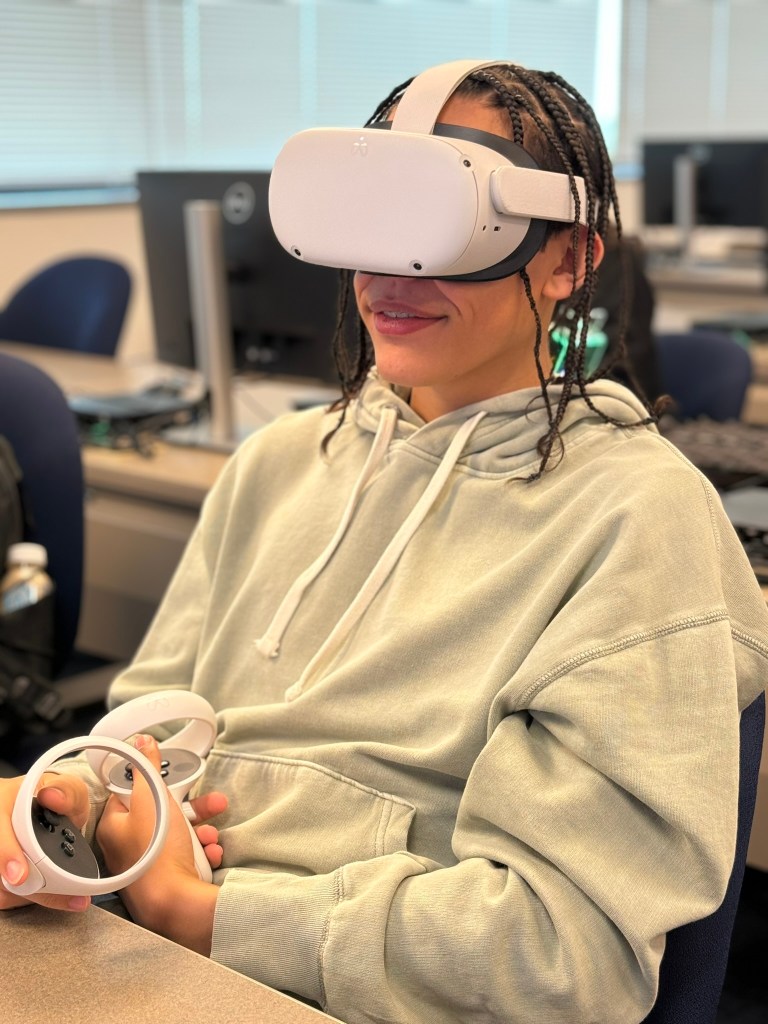SRTC criminal justice students use technology to learn use-of-force judgments
Published 11:30 am Tuesday, April 30, 2024

- An SRTC student uses a virtual reality headset in Benjie Nobles's Criminal Justice class.
MOULTRIE — The Criminal Justice Program at Southern Regional Technical College is shaping the future of criminal justice education through its innovative use of technology. Benjie Nobles, criminal justice faculty at SRTC, focuses on providing hands-on experiences for his students and preparing them for real-world scenarios with virtual reality headsets and judgment simulation technology.
Students use virtual reality headsets to transport themselves into various criminal justice environments, allowing them to explore crime scenes, courtrooms, arrests, and prisons, SRTC said in a press release. After completing each VR session, they write a report applying the virtual experience to the current course subject matter, discuss legal and/or ethical issues that may arise, and describe future implications as they relate to law enforcement, courts, and corrections.
The Criminal Justice program at SRTC also uses judgment simulators to provide students with hands-on decision-making experience and understand how difficult it is to decide at a particular moment whether to use deadly force in law enforcement encounters, SRTC said. The simulators present students with realistic scenarios where they must determine how to handle situations with communication or force. Through these simulations, students gain a deeper understanding of the complexities of law enforcement. Students must use their analytical skills to make sound judgments in high-stakes situations.
On the morning of April 16, Nobles’s Criminal Justice class was joined by two Moultrie Police Department officers at SRTC-Moultrie for this class’s first time using the judgment simulator. Officer Lawton and Office Johnson guided students through the simulation and provided feedback and instruction to each student. Johnson reminded the class of the importance of confidence in law enforcement. She encouraged each student, “Confidence in yourself and your decision-making while practicing these techniques is paramount – not just for the first time, but every time.”
Nobles’s 18 years of experience in the Department of Corrections infuses his teaching with real-world insights, enriching students’ understanding of the complexities and challenges within the criminal justice system, SRTC said. Nobles reminds his students that all emotions they feel are real. After each student completed the simulation, he asked them what emotions they were feeling. Many students expressed that the scenarios in the simulation made them feel anxious or scared. Nobles teaches them it is important to learn how to act in situations while experiencing these feelings.



